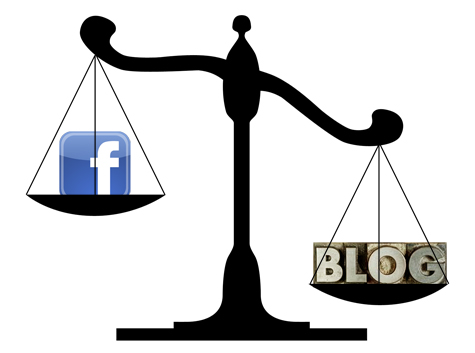
The following article was written by our Dean of Education at Tomato University: Daniel Bates.
I recently attended a conference that included the administrators of 20 non-profit organizations. The topic shifted to them discussing their internet presence and nearly all raised their hands when questioned as to whether they had a website/blog with roughly the same number indicated that they also used Facebook for marketing their organizations.
The topic of logo/branding came to light and it was common to send the instructor to their websites to see an old logo and their Facebook account to see the new logo. This was not a planned occurrence, however nearly everyone in the room expressed their frustration about the inability to change their website layout. They all noted that Facebook simply makes it much easier and more convenient to control the few things that these administrators needed to do and as a result their sites were becoming more and more outdated.
This experience was not entirely eye-opening as I’ve talked to hundreds of real estate agents who come to the Real Estate Tomato from bad webmaster/hosting experiences where they are unable to easily update their site or fix things (something that agents should always consider before settling on a $1.99/month hosting). I didn’t, however, expect the numbers that I witnessed that day and one person asking if they should give up on the site and move to Facebook.
I’ve seen some social media advocates pitch this idea before and couldn’t be more opposed, so here is my argument for why Facebook should not replace your blog:
Misinterpreting the Numbers
Many agents don’t install or regularly check analytics on their blog to truly understand the number of visitors they receive on their site vs. the very small number of fans (I refuse to call them “likes”, it just sounds too stupid) that they have on Facebook.
They also make the mistake of focusing on total number of fans instead of looking into their insights and studying their feedback responses and the number of “active monthly users” on their fan page.
This ‘insight’ is clearly a much more accurate number of people who you are reaching with your message. The bottom line is that if you have 500 fans and only 100 active monthly users, than you are only marketing to 100 people.
Your website is probably reaching far more (and different) people than that on a weekly basis.
Missing Your Market
While FB continues to grow each month, it has gobbled up less than half of all US users. Don’t get me wrong, this an astonishing number rivaled only in amazement by the vast number of users who still use Internet Explorer.
My point is, unless you work in a market where you only work with clients under 25 years old, you are greatly excluding yourself from your total market by only focusing on FB marketing. I dare say that you are even exiling yourself from the one source that can deliver more leads than any other source; Google.
Use FB as a supplement to your blog and create a richer connection and experience between you an your fans, but don’t neglect more than half of the market not plugged in on Facebook.
Limiting the Experience
While FB allows you more opportunities to share, including more characters, video, pictures, links, and even FBML tabs, these all pale in comparison to the things that can be done with a well formulated blog post. I can build an argument (like the one here) and back it up with supporting points, examples, embedded videos, maps, image galleries and more without concern of a character limit. I can then deliver news of that post to some of my audience through social media (including FB), but I can also reach the rest through the search engines, RSS readers, and email subscriptions.
I’m not trying to push you away from FB. When used properly, FB can be an extremely effective tool for reaching a significant portion of your potential market in a fast and direct medium while building meaningful relationships. You simply need to weigh your options and consider all the consequences before making the decision of where to focus your marketing efforts.




